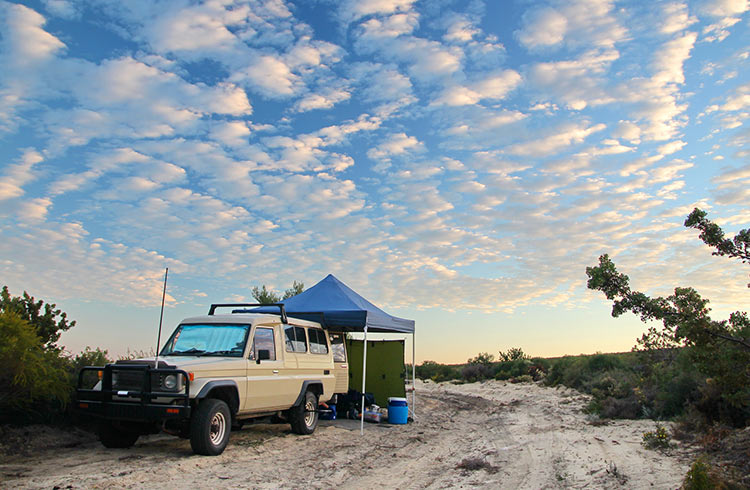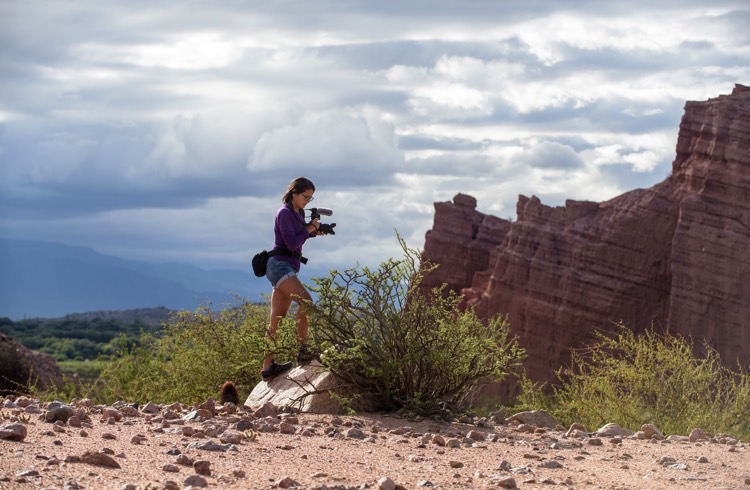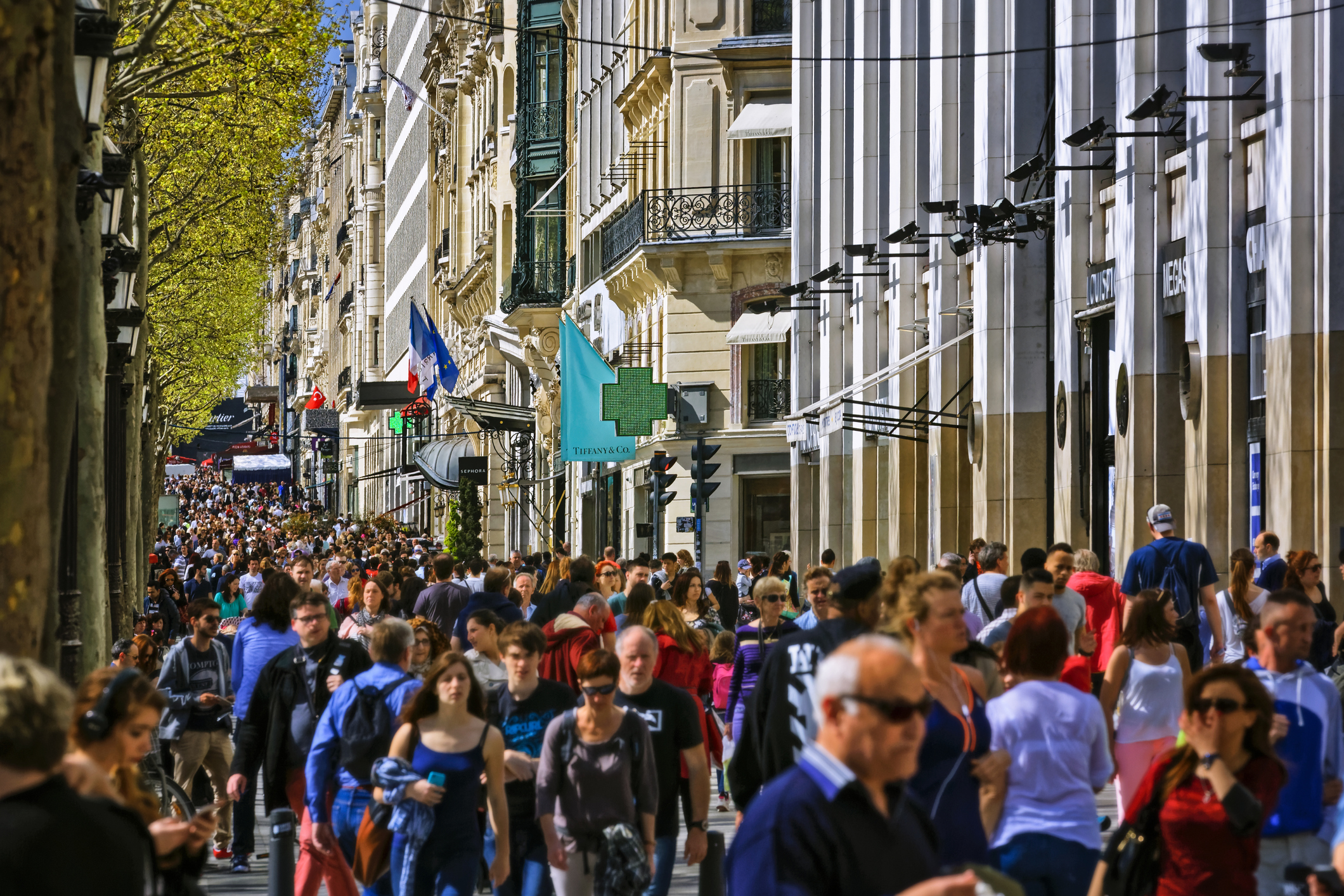Australia has a wide range of accommodation options available for travelers on all budgets. Here’s everything you need to know about finding a place to stay, plus a few handy tips before you book.
 Photo © Getty Images/Totajla
Photo © Getty Images/Totajla
- Finding Accommodation in Australia
- Hostels
- Flats and House Sharing
- Hotels and B&BS
-
AirBnbs - Camping
- Rubber Tramping
Finding Accommodation in Australia
Australia has a wide variety of places to stay to suit all budgets, from high-end luxury, campgrounds, beach houses and hostels. With festivals and events on year-round, it’s important to suss out what’s going on, and book accommodation well in advance for big events like New Year’s Eve in Sydney (when even locals will book beds to avoid having to fight for a taxi home after the midnight fireworks).
Hostels
Hostels can vary greatly in standard and size, so look at reviews and ratings on online booking sites, and on social media. At a minimum, they should offer free WiFi, a kitchen, shared bathrooms, and several dorm rooms, and should be cheaper than hotels. Many hostels will offer same-sex as well as mixed dorms, with female-only rooms tending to book out fast. Some hostels will offer more expensive private rooms that couples, families or groups can book.
In hostels, you are expected to clean up after yourself, turn your phone on silent at night, and not to fall in the door drunk. Hostels are great places to make new travel buddies, with noticeboards often covered with signs looking for additional people to fill car spots on road trips and tours.
Flats and House Sharing
If you’re looking to stay longer than a few weeks, house sharing can be the most affordable option for travelers and can be easier than trying to find a house with locals who don’t want to search for a new flatmate every few months. Try flatmates.com.au or Domain.com.au to search for rooms, as well as Gumtree, the Australian equivalent of Craigslist.
Rent can be quoted weekly or monthly (it often varies between cities like Sydney and Melbourne), and bond is usually four weeks or one month’s rent. If you have an informal or short-term agreement, try to negotiate on price. Breaking formal leases can cost you up to six weeks of rent (again, it varies by state), so make sure you know what you are agreeing to.
Try to get something in writing if you are signing up for anything longer than a few weeks, make sure you know what it includes, and understand the fine print. If you run into trouble, each state has a tenants’ union which may be able to provide you with advice and assistance.
Hotels and B&BS
Hotels and bed and breakfasts in Australia can be booked through the standard international booking sites like booking.com, hotels.com, Expedia, and TripAdvisor. Prices will climb when big events or festivals are on, so set a price alert if you’re working to a budget.
Prices should be inclusive of goods and services tax (GST) and not have any other costs on top unless you want parking, breakfast, or other services not included in the price.
Staying in a serviced apartment with a kitchen can be a good way to cut down on costs if you don’t want to stay in a hostel.
Outside of the cities, Australia has many affordable roadside motels and accommodation in pubs. It’s worth booking or calling ahead, as towns can be long distances apart, and being stuck without accommodation isn’t ideal.
AirBnbs
Airbnb and other accommodation sharing sites are legal in Australia, although different states have different rules governing short-term rentals, and the rules around them continue to evolve.
In the big cities, you might be able to find better-priced accommodation in the suburbs, so do a little research to make sure there’s suitable public transport to get to the things you want to see.
Camping
With so many national parks and wide-open spaces across Australia, camping grounds are common outside of major cities and regional centers. Most campsites will have an online presence and can be booked in advance. Popular campsites might book out early when events are on, in particular, music festivals, and it can be illegal to camp on beaches or national parks without a permit, so always check online or with the locals before you set up camp. The National Parks and Wildlife Service website has details of campgrounds in national parks around the country, which are often in beautiful locations.
Rubber Tramping
Rubber tramping, or living in a van, has long been a popular way to get around Australia, particularly for surfers. Reddit has some handy forums on converting vans into comfortable living spaces, and tips for beating the heat during summer.
Be mindful of where you can park, as inner-city residents are quick to complain about people living in vans parked outside hostels and other convenient locations.
*This article was updated in 2018.
Related articles
Simple and flexible travel insurance
You can buy at home or while traveling, and claim online from anywhere in the world. With 150+ adventure activities covered and 24/7 emergency assistance.
Get a quote

No Comments